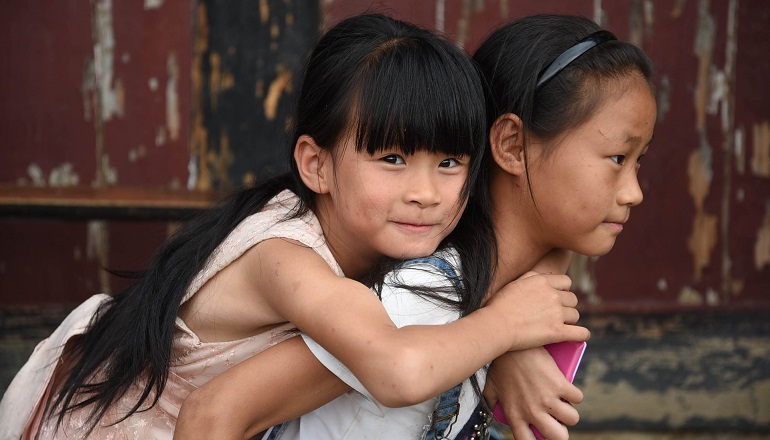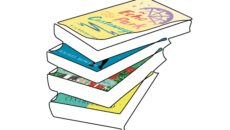In China, I learned—or rather, finally came to realize—that information about the reality of Chinese adoption is selectively presented to would-be parents. That in the United States, nobody actually tells a lie. Its just that certain parts are left out and certain others emphasized.
The ads implore, “Chinese orphans need you!” At one time I thought that was true, a challenge to be answered. Now I marvel at how a single sentence can contain so many distortions.
For one, the girls aren’t orphans. An orphan is a child whose parents are dead. The Chinese parents of these children, the people who gave them life, are missing, hidden, unknown—but by and large they are alive and well. The repercussions of their absence are but the beginning of what goes unsaid. The beginning of what is briefly mentioned.
The process of adopting a child from China requires you to accept a vast amount of uncertainty. The health of your child, her age, where she might be living, all of these details are known only as percentages of likelihood. Until you meet her, the rest—character, personality, temperament—is mostly mystery.
I was ready for that. But I wasn’t prepared for a few obvious truths, because nobody bothered to tell me, and I didn’t know enough to ask.
[Instant eBook: How to Raise Adopted Children]
Amid the photos of gorgeous, dark-eyed Chinese children and the lengths of pious texts imploring you to help, expounding on the difference that you alone can make, there’s not one word in the colorful brochures about the pounding emotional assault of the experience. Not a line about the disorienting attack of conflicting feelings.
They never tell you what it might be like to venture inside an orphanage at a place like Xiangtan. To confront the life that your child, the person you love most, would have been left to lead in China. To see the life that children just like her—every bit as bright and beautiful, every bit as deserving—are living now.
They don’t tell you that the children of the orphanage are all coming home with you. That these kids, with their wan smiles and growling stomachs, are going to follow you across the ocean, move into your house, inhabit your dreams. They don’t tell you that from now on you’ll never push back your chair from the dinner table without thinking of small children—just like your daughter—whose ribs are tight against the skin. That now, when you saunter through Toys R Us, your child happily choosing a prize from among rows of pink-boxed Barbie dolls, you’ll recall that, during a morning-long visit to the orphanage, you did not see a single toy.
They don’t tell you that when summer burns hot and steamy, and you’re picking out a toddler’s matching wardrobe of colorful pants sets and bathing suits, your mind will summon images of children wearing whatever came out of that morning’s laundry—a small boy in a rumpled T-shirt, a thin girl in a washed-out gown, wafting across the concrete carpet of a sun-scorched orphanage. Or that, in winter, as you pull thick blankets up to your child’s chin on a bitter night, you’ll wonder whether the children left behind are warm, as well.
They don’t tell you that on Christmas morning, your girl’s gifts piled halfway up the wall, the extended family delighting in her presence and her excitement, your thoughts will turn to the children who will never see so many toys or experience such an outpouring of love and affection. They don’t tell you that even the celebration of your daughter’s birthday will be tinged with sadness. That, as you watch your child lean forward to blow out the candles on her cake, you’ll think of a nameless woman across the ocean, and know that, for her, this is a day of grief.
People think adopting a baby from China will be the answer to their prayers and problems, the fulfillment of their long-delayed dreams of parenthood, the antidote to their infertile physical forms. What they learn, what I learned, is that it’s mostly exchanging one set of complications for another. I could write a much better brochure for the adoption agencies. One that would convey all the things that soon-to-be parents don’t realize, what no one tells them, what in their deepest heart of hearts, they may not really want to know.
It would say: Don’t think you’re going to walk into an overcrowded orphanage, take one child out, leave 99 behind, and be the same person when you sit down to breakfast the next morning. You won’t be. It’s too cruel a lottery. And your participation in it will mark you.
It would say: From now on, wherever you may go and whatever you may do, the faces of the children left behind will come to you, unbidden, glimpsed in the eyes of a child scampering across the street in front of a crossing guard and in the smile of a girl skipping rope on a playground.
It would say: When you travel to China, you think you’re bringing home one little girl. Only later do you realize that a host of specters have moved in. You think you are tying your fate to the life of a single child. You find out that you have been inextricably bound to the lives of dozens of others. And that there is little you can offer those children besides prayers.
[“Our Journey to China to Adopt Our Daughter”]
Reprinted by permission of William Morrow, an imprint of HarperCollins Publishers.

 " title="Permalink to [EXCERPT] That Kind of Mother" rel="bookmark">[EXCERPT] That Kind of Mother
" title="Permalink to [EXCERPT] That Kind of Mother" rel="bookmark">[EXCERPT] That Kind of Mother